Understanding Employee Protection Laws
In the dynamic landscape of Australian HR compliance, understanding employee protection laws is paramount for businesses. From the Fair Work Act to anti-discrimination statutes, compliance ensures fairness and equity in the workplace. At UKG, we offer tailored solutions to help businesses navigate these regulations effectively. Our expertise ensures your organisation remains proactive, upholding the rights and wellbeing of your workforce in line with Australian laws.
HR Compliance Checklist
Curious about HR compliance in Australia? UKG offers insights into various compliance types and checklists relevant to the Australian context. Whether it's wage and hour regulations or safety standards, staying compliant is essential. Our resources empower businesses to develop robust strategies, ensuring they meet Australian HR compliance standards. Stay ahead of the curve and safeguard your organisation's success with UKG's expertise in Australian HR compliance.








Find the right solution to unlock happier outcomes
Our award-winning solutions deliver technology experiences that support the ways life and work are interconnected — to deliver better outcomes for your people and your business.
Frequently asked questions
- What are the responsibilities of HR?
In the context of compliance, HR holds multifaceted responsibilities. HR ensures that hiring processes adhere to equal employment opportunity laws, maintains accurate employee records to comply with data protection regulations, and implements workplace policies aligned with labor laws and industry standards. They oversee training programs to educate staff on compliance requirements and conduct audits to monitor adherence. HR also investigates complaints or violations, takes corrective actions, and collaborates with legal experts to mitigate compliance risks. Ultimately, HR plays a pivotal role in safeguarding organisational integrity and maintaining ethical standards across all operations.
- How many HR staff per 100 employees?
The optimal ratio of HR staff to employees for compliance purposes varies depending on factors such as industry, organisational complexity, and regulatory requirements. However, a commonly cited benchmark suggests approximately 1 HR staff member per 100 employees. This ratio allows for effective oversight of compliance-related tasks, including policy development, training, record-keeping, and enforcement. Organisations may adjust this ratio based on their specific needs, but maintaining adequate HR support is crucial for ensuring adherence to legal obligations and mitigating compliance risks.
- How can HR support Diversity and Inclusion?
In the context of compliance, HR supports diversity and inclusion by implementing equitable hiring practices, ensuring equal opportunities for all candidates. They develop training programs to promote awareness of diversity issues and foster inclusive workplace cultures. HR monitors compliance with anti-discrimination laws and investigates any allegations of bias or harassment. By incorporating diversity and inclusion metrics into performance evaluations, HR encourages accountability and promotes a diverse workforce. Additionally, HR collaborates with legal experts to ensure policies and practices align with diversity and inclusion regulations, fostering a fair and respectful work environment.






